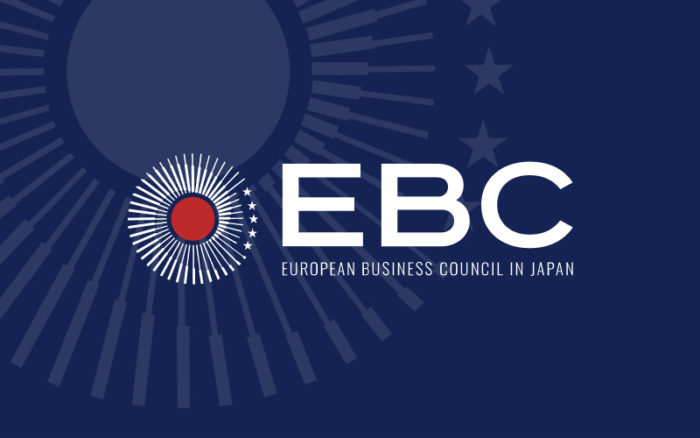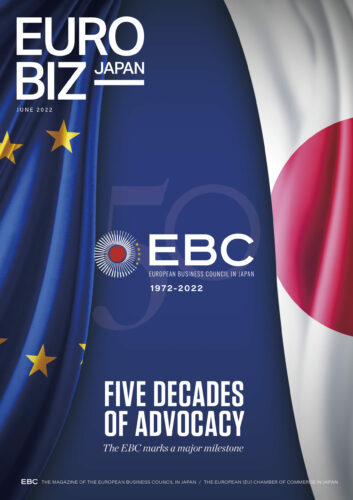-
Published:
Science-Based Sustainability Education for Adults
Committee:
Sustainability & Social Responsibilitystatus:
NewSurveys suggest that public awareness of climate change in Japan is relatively high, and climate denialism is far less prevalent than in some other developed countries. However, this awareness has not translated into widespread behavioral change or strong public pressure for structural reforms. The emphasis on symbolic communication, such as superficial references to the SDGs, risks reinforcing a passive understanding of sustainability across all age groups. There is a particular need to target adults, who hold decision-making power in government, business, and society at large. Given the urgency of the climate and ecological crises, meaningful action cannot wait for future generations to take the lead.
-
Published:
Regulations Against Greenwashing
Committee:
Sustainability & Social Responsibilitystatus:
NewAs interest in ESG and sustainability grows in Japan, so does the risk of greenwashing, where companies make misleading claims about the environmental impact of their products, services, or strategies. In the absence of clear legal definitions and active enforcement, misleading claims can persist unchallenged, eroding public trust and confusing both consumers and investors. Civil society groups have raised concerns that the current advertising oversight mechanisms in Japan are not equipped to respond effectively to such issues, with some complaints remaining unanswered for extended periods. This highlights the need for a more robust and transparent regulatory framework.
-
Published:
Consumer Awareness for Sustainable Food
Committee:
Sustainability & Social Responsibilitystatus:
NewConsumer demand for sustainable food products in Japan remains relatively low compared to Europe. Despite growing awareness of environmental issues, sustainability considerations are still limited in everyday food purchasing decisions. This gap is driven by a lack of clear labeling, limited public communication, and weak differentiation in the marketplace.
UPDATES
DIGITAL WHITE PAPER
NEW ISSUES
URGENT ISSUES
RESOLVED ISSUES
-
Published:
Temporary in-activation of gaiben licence
Committee:
Legal Servicesstatus:
ResolvedWith the increased use of secondments within the legal services field, it is not uncommon that registered gaiben temporarily leave Japan and then come back to again practise foreign law in Japan. For a domestic lawyer it is possible to either (1) continue paying their bar membership fees while remaining on the bar rolls with their original registration number or (2) stop paying fees whilst temporarily suspending their license only to re-activate it when returning to Japan through a simple application process. This is not possible for a gaiben. The only thing possible for a gaiben is to re-apply from scratch. The EBC sees no reason for this blatant discrimination of foreign lawyers.
-
Published:
Branches
Committee:
Legal Servicesstatus:
ResolvedLegislation was finally passed in 2014, permitting a gaiben law firm to incorporate as a hojin, and thereby become eligible to open more than one branch. However, the 2014 legislation did not permit gaiben and bengoshi together to establish a hojin. The effect is to severely limit the usefulness of the 2014 legislation. We understand that the changes in the Act to permit gaiben and bengoshi to establish a hojin together have been enacted and we await confirmation that the changes have been implemented by no later than September 2020.
-
Published:
Malt and quota management system
Committee:
Food & Agriculturestatus:
ResolvedJapan had a tariff quota system for malt even from before the EPA, which introduced a quota for EU origin malt. However, only companies manufacturing beer themselves or importing exclusively for the use of a particular brewery were allowed to apply for a quota, discriminating against traders wishing to import on their own account for selling to multiple customers in small volumes or on short notice. Following multi-year efforts by the EBC and the EU, this was remedied in late 2021, opening the door to importers to provide for a large variety of EU-origin malts even in smaller quantities for the flourishing craft beer market, and for non-brewery users. However, an administrative burden remains, which is unreasonable considering the quota is not fully utilized and all eligible quota applications are being granted.
NEWS FEED
- Japan to Set Up National Intelligence Bureau as Hub for Countering Foreign Influence, According to Bill Proposal (The Japan News)
- Gov’t to craft guidelines on dual pricing at tourism facilities (Japan Today)
- Japan moves to bring intelligence agency functions under one roof (The Asahi Shimbun)
- Japan aims to draw up int’l recommendation to curb space debris near moon (Japan Today)
- Japan version of CFIUS to include screening of indirect foreign investments (Nikkei Asia)
- Cargo, investment play part in Japan’s space industry in global race (The Mainichi)
- Tokyo to increase subsidy for local commissioners amid shortage (The Asahi Shimbun)
- Japan to revise law to protect new crop varieties from unauthorized export (Japan Today)
- Japan bill requires airlines deny boarding to unauthorized visitors (Nikkei Asia)
- Japan aims for 32% expansion of used-goods market by 2030 (Kyodo News)
- Japan to hold int’l conference on plastic pollution in Tokyo in March (Japan Today)
- Bill to require mega solar farm operators to recycle panels (The Asahi Shimbun)
- LDP to propose gov’t allow lethal arm exports (Japan Today)
- Transport Companies See Opportunity in Narita Expansion; Airlines, Railways Prepare to Meet Expected Growth in Demand (The Japan News)
- Japan nixes advance deportation notice to lawyers of foreigners (The Mainichi)
- Japan unveils new medical fees with inflation surcharge from June (Kyodo News+)
- Japan to Strictly Control Exports of Lethal Defense Equipment While Mulling Expanding Exports’ Range (The Japan News)
- Japanese Govt to Reduce Risks for Companies Investing in Overseas Projects Vital for Economic Security (The Japan News)
- Japan plans to draft standalone strategy to beef up intelligence (The Asahi Shimbun)
- U.N. Plans to Set Safety Regulation Standards on Automated Driving That Can Cover All Operations under Specific Conditions (The Japan News)
- Japan’s Public, Private Sectors Plan to Sell Dual-Use Products to Nordic Countries as Delegation Touring Europe (The Japan News)
- Green Tea Exports Hit Record High in 2025 Amid Growing Demand, Likely to Be Driving Force Behind Govt Export Target (The Japan News)
- Japan’s annual farm exports rise to record 1.7 trillion yen (Japan Today)
- Japanese Govt to Require Confirmation of Identity of Buyers of Data-Only SIM Cards, Seeks Cut Down on Fraud Committed through Social Media (The Japan News)
- Japan’s 2025 industrial output rises 0.8%, 1st increase in 4 years (The Mainichi)
- Hybrid cars top choice for consumers in Europe in 2025: data (Japan Today)
- Japan May Stop Sending Deportation Notices to Lawyers of Foreign Nationals (The Japan News)
- Japan Mulls Subsidizing Sustainable Aviation Fuel for Domestic Airlines; Would Require Fuel Suppliers to Provide Mixture (The Japan News)
- Japan aiming for first strategy to enhance defense industry (The Asahi Shimbun)
- Japan expected to miss fiscal health goal again in FY 2026 (The Mainichi)
- Japan Eyes Wider Deportation Criteria in New Policy (The Japan News)
- Japan to diversify export destinations for agricultural, food products (Japan Today)
- Japan, Italy to Boost LNG Cooperation; Aimed at Diversifying Japan’s LNG Sources (The Japan News)
- Japan to diversify export destinations for agricultural, food products (The Mainichi)
- Japan to let private sector use 3 nuclear fusion R&D sites (Nikkei Asia)
- Government mulling creation of Japanese version of CFIUS (Asahi Shimbun)
- Japan seeks easier international-domestic transfers at Haneda Airport (Nikkei Asia)
Join & Support
EBC members can not only learn about important changes taking place in Japan, but also play a critical role in influencing change themselves.
Some 300 of the over 2,500 affiliated local European companies and individuals participate directly in one or more of the EBC’s 22 industry committees covering a wide variety of economic sectors.









